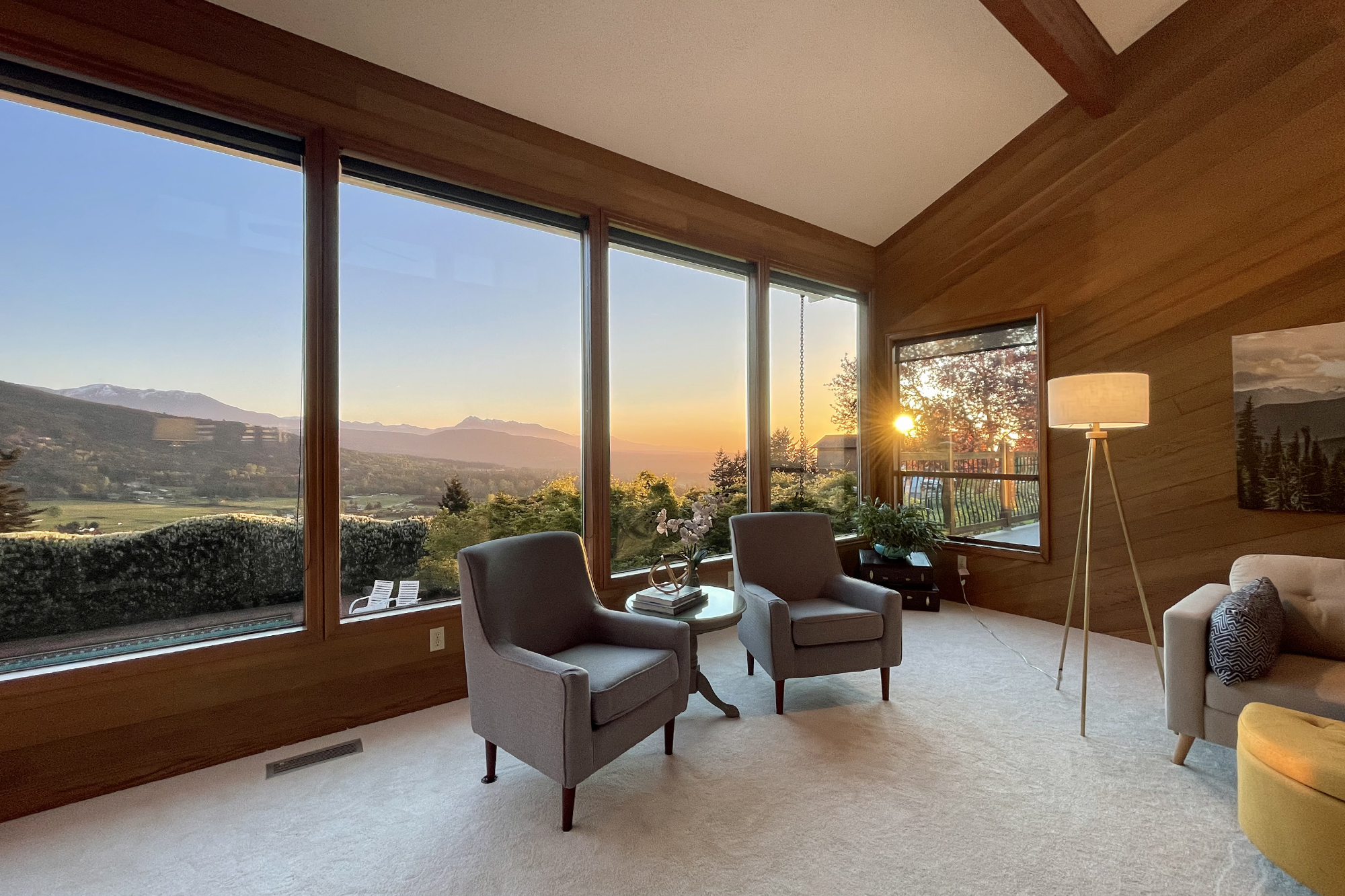Published May 29, 2024
Let's Shed Some Light on Home Staging

Lighting plays a crucial role in setting the mood and functionality of any room. Whether you're looking to create a cozy reading nook, a vibrant living space, or a functional kitchen area, the right lighting can make all the difference. Here are some detailed tips to ensure your lighting is perfect:
1. Check and Replace Your Light Bulbs
First things first, ensure all your light bulbs are in working order. Burned-out or missing bulbs can make a room feel neglected and dim. Regularly check your light fixtures to ensure they are all functioning properly. If you find any bulbs that need replacing, take the opportunity to consider the wattage. Increasing the wattage slightly can brighten up a room, but always make sure you're within the safe limits specified for your fixtures to avoid overheating or electrical issues.
2. Match the Color Temperature
One of the most important aspects of lighting is color consistency. Different bulbs emit different shades of light, ranging from warm yellows to cool whites. Walking into a room with a mix of incandescent bulbs and bright white or almost fluorescent lights can be jarring. Aim to use bulbs with the same color temperature throughout a room. This will create a more harmonious and aesthetically pleasing environment. For living spaces, warm white bulbs (around 2700K-3000K) are generally preferred for their cozy feel, while cooler white bulbs (4000K-5000K) work well in kitchens and workspaces for a brighter, more energetic atmosphere.
3. Incorporate Layered Lighting
Layered lighting involves using different types of lighting to create depth and versatility in a room. This includes ambient lighting (general illumination), task lighting (focused light for specific tasks), and accent lighting (highlighting specific features). By combining these layers, you can tailor the lighting to suit various activities and moods. For example, in a living room, you might have overhead ambient lighting, table lamps for reading, and accent lights to highlight artwork or architectural features.
4. Add Lamps for Style and Function
Lamps are not just practical; they are also a fantastic way to enhance your decor. Choose lamps that are appropriately sized for your space and that complement the overall look of the room. For example, a large floor lamp can make a statement in a corner, while a pair of matching table lamps can add symmetry and style to a console table or nightstands. Position your lamps to provide the right amount of light where you need it most. Consider using dimmer switches or smart bulbs to adjust the lighting levels according to different activities and times of day.
5. Pay Attention to Fixture Styles
The style of your light fixtures can also impact the overall aesthetic of your room. Choose fixtures that match your decor style, whether it's modern, traditional, rustic, or industrial. Pendant lights, chandeliers, and sconces come in a wide range of designs and can serve as focal points in a room. Updating outdated fixtures can instantly refresh the look of a space.
6. Use Natural Light
Don't underestimate the power of natural light. During the day, make the most of windows, skylights, and glass doors to bring in natural light. Use sheer curtains to diffuse harsh sunlight while still allowing plenty of light to filter through. Strategically placing mirrors can also help reflect natural light around the room, making the space feel brighter and more open.
By paying attention to these details, you can transform any room into a well-lit, inviting space. Good lighting not only improves visibility but also enhances the mood and overall aesthetic of your home. Whether you're replacing bulbs, adding new lamps, or upgrading fixtures, these tips will help you light up your life beautifully and effectively.
So, go ahead and start making these lighting improvements today—you'll be amazed at the difference it can make!





